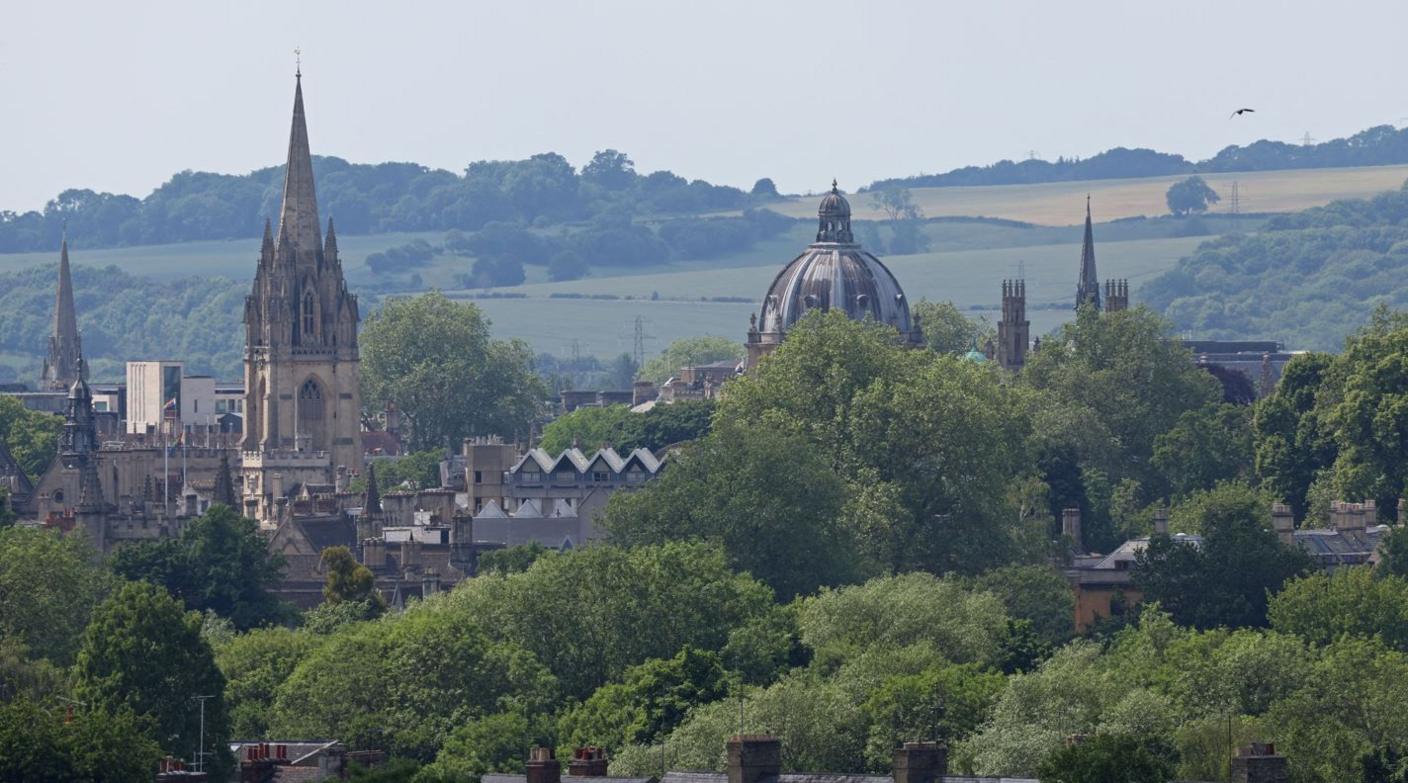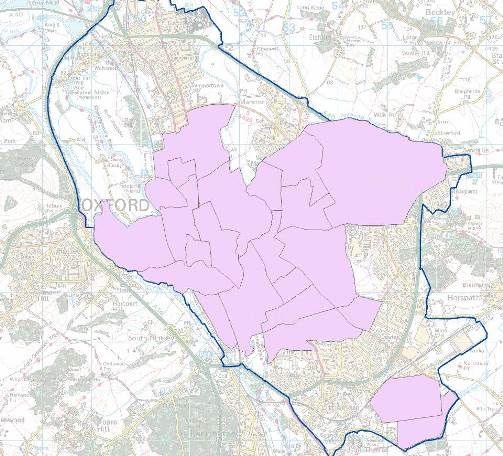Council proposes expansion of smoke control areas

There are currently 23 smoke control areas in Oxford
- Published
A council has launched a consultation into whether it should expand the area where people are banned from burning high-polluting fuels.
Oxford currently has a "patchwork" of smoke control areas (SMAs), which the local authority is seeking to replace with one for the whole city.
The council has invited residents and businesses to share their views on its plans, which are among the steps to improve air quality outlined in its Air Quality Action Plan 2021-2025.
The consultation is running until 31 January.

The council's new plans propose the whole city becomes a single smoke control area
The introduction of SCAs aims to protect the public from microscopic particles that can get into lungs and cause serious health conditions.
The council said that in Oxford 66% of all local harmful particulate matter came from domestic heating, including gas heating, cookers and solid fuel stoves.
By comparison, only 21% comes from transport.
Residents and businesses in the designated areas must follow certain regulations to be able to burn solid fuel in a way that is both clean and safe.
The council can issue fines of between £175 and £300 if it witnesses smoke from the chimney of a domestic or commercial building in a SCA.
Oxford currently has 23 SCAs, such as the city centre, Headington, most of East Oxford and Blackbird Leys.
The new plans are considering more areas to be added, including north Oxford - from Summertown up to Wolvercote - Rose Hill, Littlemore, New Headington, Old Marston, and parts of the Temple Cowley.
Councillor Anna Railton, cabinet member for Zero Carbon Oxford and Climate Justice, said there was "growing evidence about the impact of poor air quality on health".
If approved, the single SCA is expected to begin in autumn 2024.
Follow BBC South on Facebook, external, X, external, or Instagram, external. Send your story ideas to south.newsonline@bbc.co.uk.